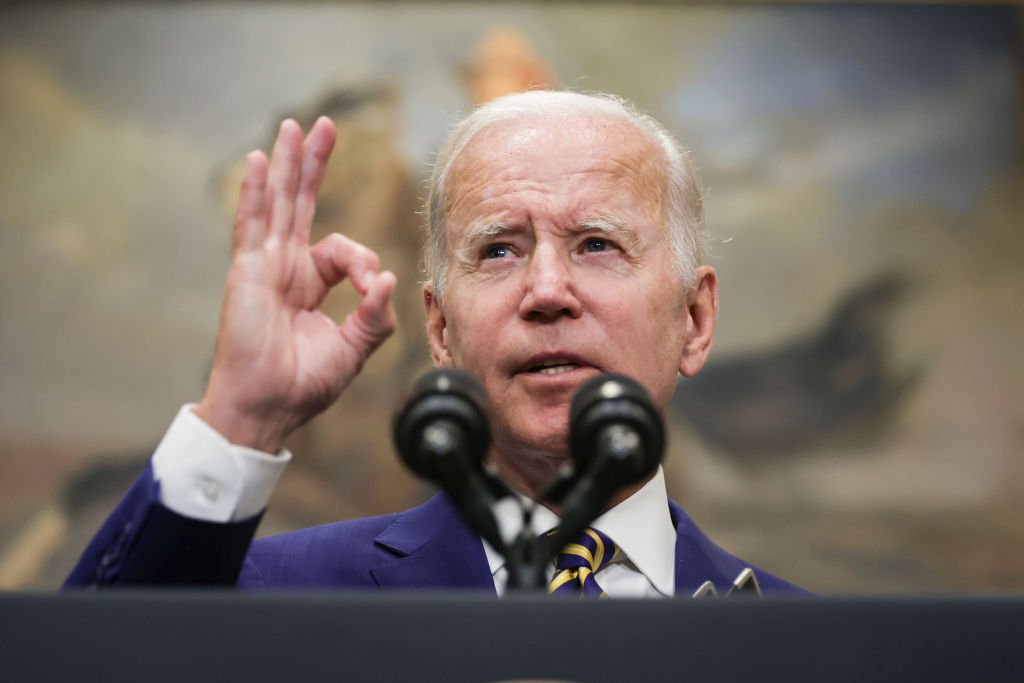President Joe Biden, on Wednesday, August 24, finally announced details of his student loan debt cancellation and reform plan. The news dropped in a tweet after the president returned to Washington, DC, from his Delaware beach house. Two new details were revealed. Pell Grant borrowers would get $20,000 wiped from their debt ledger, double the taxpayer subsidy provided to other borrowers. Additionally, there will be a new repayment plan rubric; as a result, student debtors can expect maximum payments to decrease considerably in the future. The program’s cost, meanwhile, was incomputable to administration officials at this time.
Here’s the Deal
In the afternoon, Biden conducted a press conference announcing more elements of the plan. It was a classic performance from this president, complete with off-script tangents. Then, back on script, he announced that 12 years of universal education is not enough, perhaps paving the way for future taxpayer spending on college education.
The debt relief program is limited to those earning less than $125,000 per year as an individual, or double that for household income.
A repayment cap is perhaps the most profound change for school loan borrowers and taxpayers who will foot the bill for Biden’s generosity. Undergraduate debt repayments are to be capped at 5% of discretionary income – income left over after paying mortgage or rent, taxes, groceries, utilities, and other necessary expenses. Moreover, under the details announced Wednesday, borrowers will have their remaining balances extinguished after paying off their loans for 20 years, regardless of the outstanding balance. As a result, minimum wage workers, for instance, would not be required to make loan payments.
How such terms won’t incentivize tuition increases and commensurately more borrowing by future low-income earners who will pay nothing was not explored. Neither was the cost of the program. It was explained, however, that Americans would have to wait until the scheme is implemented to see what the final bill will be – seriously.
Meanwhile, more and more Americans recognize colleges and universities offer a poor bargain on many levels. Recent headlines like “College enrollment drops 1.4M students, threatening long-term stability of higher education” tell the tale. Many colleges are wholly captured by progressive politics, feverishly anti-male, anti-free speech, and anti-conservative. Maybe that’s a feature rather than a bug for Biden.
Legal Concerns?
What legal justification does Biden have to implement this plan? Assistant to the President for Domestic Policy Susan Rice said it was possible via the Higher Education Relief Opportunities For Students (HEROES) Act of 2003.

(Photo by Alex Wong/Getty Images)
That piece of news will likely be a shock to the members of Congress who voted for the HEROES Act, and George W. Bush, who signed it. The law was created to ensure military members receiving federal student aid will not be penalized for military service or have their educational journey adversely affected by it. The legislation was so non-controversial, it passed the Senate unanimously on a voice vote and had but a single no vote in the House.
The Biden administration appears to be using a pinhole-sized exception in the law to drive a train through. The act gives the secretary of education the power to change loan terms for veterans and includes a line to catch those not sufficiently covered by that status: People who “suffered direct economic hardship as a direct result of a war or other military operation or national emergency, as determined by the Secretary.”
The Biden administration’s interpretation of that provision is that it includes every borrower in the country. To find those with opposing views, one need not look further than Speaker of the House Nancy Pelosi (D-CA). She said during a press conference in 2021:
“People think that the president of the United States has the power for debt forgiveness. He does not. He can postpone, he can delay, but he does not have that power. That would have to be an act of Congress.”
She has plenty of agreement from conservatives and libertarians who bristle at an ever-larger power grab by the executive. The matter will no doubt be fought over in the courts.




